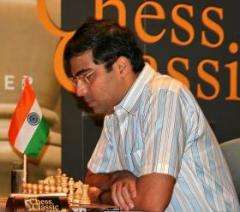January 12, 2009 weblog
Why Men Rank Higher than Women at Chess (It's Not Biological)

(PhysOrg.com) -- In the recorded history of chess, world champions have always been male, not female. Further, there is currently only one woman in the top 100 chess players in the world. Because chess is often considered to be the ultimate intellectual activity, male dominance at chess is often cited as an example of innate male intellectual superiority. But rather than resort to biological or cultural explanations, a recent study proposes a different explanation.
A team of researchers from the UK has shown that the under-representation of women at the top end in chess is almost exactly what would be expected, given the much greater number of men that participate in the game at all. Researchers Merim Bilalic, et al., have published their research on this statistical sampling explanation in a recent issue of the Proceedings of the Royal Society B.
The authors analyzed the population of about 120,000 German players as recorded by the German chess federation in April 2007. Based on more than 3,000 tournaments per year, the German chess federation measures the skill level of all competitive and most hobby players in the country (the rating correlates highly with the widely known Elo rating). The sample population included 113,386 men and 7,013 women (a ratio of 16:1).
First, the researchers estimated the expected performance of the top 100 male and top 100 female players. Then, they compared the expected differences in points between these high-ranking male and female players with the actual point differences. Theoretically, the size difference between the male and female groups should correspond to the point differences between the top performers in the two groups.
The results showed that the top three women had more points than expected, the next 70 or so pairs showed a small advantage for the men, and the last 20 pairs showed a small advantage for the women. Overall, men performed slightly better than expected, with an average advantage of 353 points, whereas the expected advantage was 341 points. Nevertheless, about 96% of the actual difference between genders could be explained by the statistical fact that the extreme values from a large sample are likely to be larger than those from a small one.
In the study, the scientists also discussed the question of why so few women participate in chess at all. While it's possible that there exists a self-selection process based on innate biological differences that leads women to drop out of chess early on, this argument rests on a controversial assumption, the researchers say. That is, it requires that there is an innate difference between genders in the intellectual abilities associated with chess - an assumption that has little empirical evidence to support it.
Whether or not statistical sampling covers all the bases of explaining male superiority in chess, the researchers hope that the explanation will be considered by both experts and laypeople. In previous discussions of gender difference, there is often no mention of participation rates, although a wide range of other reasons receive attention (e.g. different interests and gatekeeper effects, etc.).
In addition, the researchers question whether a statistical sampling explanation might explain the predominance of men at the top of science and engineering fields - although performance in these activities is much more difficult to measure than in objectively ranked chess populations.
More information: Bilalic, Merim; Smallbone, Kieran; McLeod, Peter; and Gobet, Fernand. "Why are (the best) women so good at chess? Participation rates and gender differences in intellectual domains." Proceedings of the Royal Society B. doi: 10.1098/rspb.2008.1576.
© 2009 PhysOrg.com





















